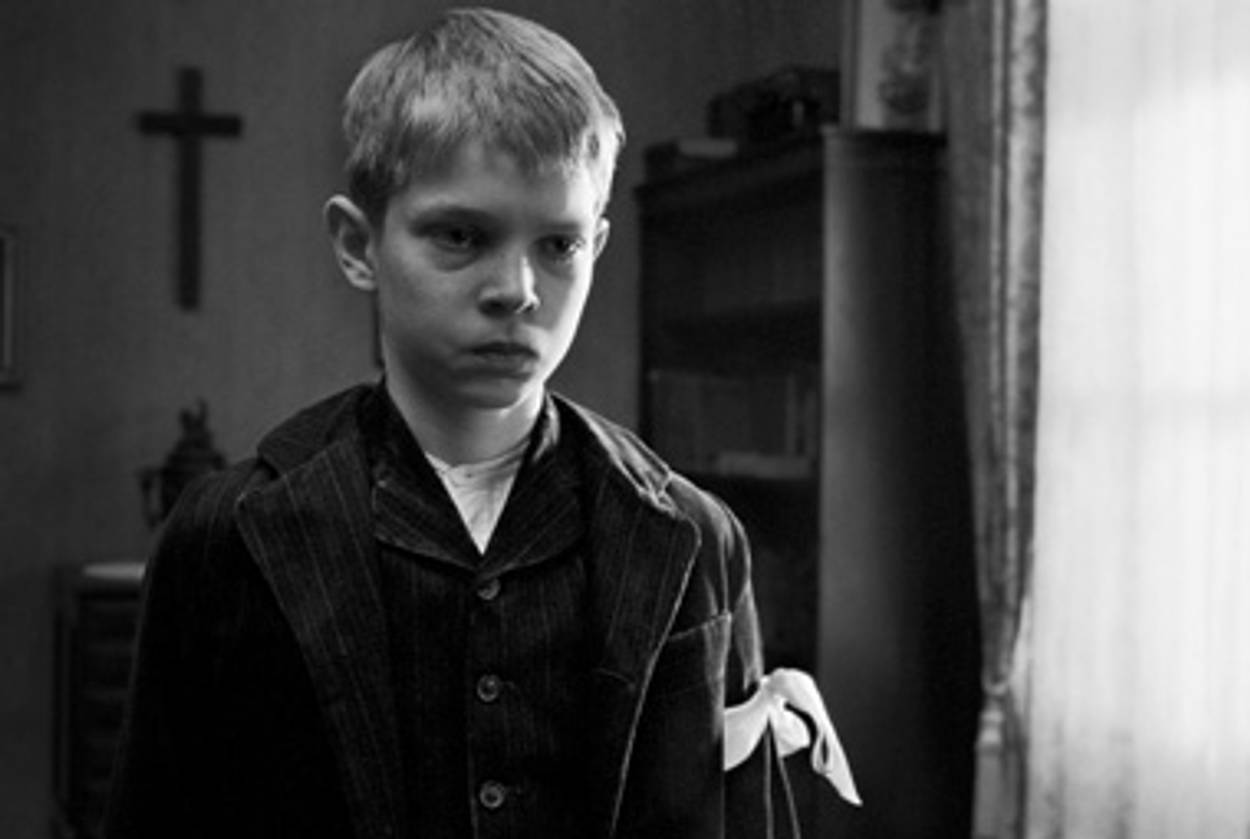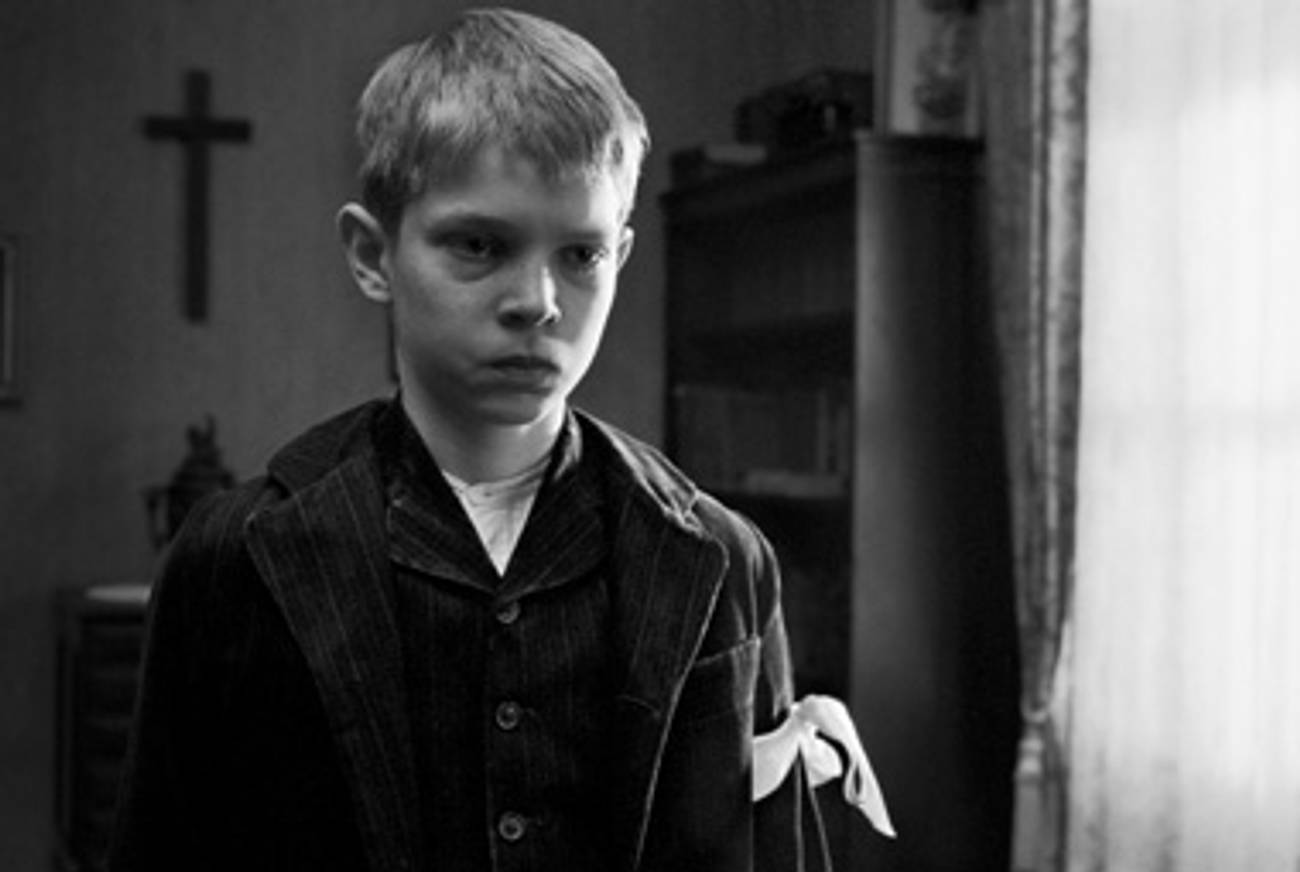Family Matters
Two Best Foreign Film nominees offer differing takes on the ties that bind




Over the course of the coming month, as members of the Academy of Motion Picture Arts and Sciences cast their votes for one of the five titles nominated for Best Foreign Language Film, they’ll be called on to assess more than just cinematic merit. Comparing two of the nominees—Israel’s Ajami and Germany’s The White Ribbon—requires choosing between two radically different worldviews.
As the films in foreign film-category are not typically the Oscar ceremony’s most widely viewed—more people, it’s safe to assume, are likely to have seen Avatar on any given day on any Manhattan movie screen than will see Ajami throughout the film’s entire theatrical run—brief recaps are in order.
The third Israeli film in as many years to receive an Oscar nomination, Ajami is an unusual work. Co-directed by an Arab Israeli, Scandar Copti, and a Jewish Israeli, Yaron Shani, the film was shot on location in the multiethnic Jaffa neighborhood for which it is named. Most of the people on screen are not professional actors. The plot jumps around from story to story, giving the events unfurling before our eyes a lifelike feel. Like the streets it so faithfully depicts, Ajami is bustling, messy, kinetic, and loud. There’s always something going on, and always someone at hand to threaten or amuse you, to offer you a strong cup of coffee or a blow to the face.
Good luck getting a decent cup anywhere in Eichwald, the village at the center of The White Ribbon. The film is the latest work from Michael Haneke, the master of such unremitting shockers as Funny Games and Caché, and it portrays a series of violent events in a sleepy, rural hamlet on the eve of World War I. The folks in Haneke’s village aren’t too friendly, and if they are you can be sure that deep inside their homes they’re doing unspeakable things to their children.
There are also aesthetic differences. Ajami is colorful and apoplectic, The White Ribbon shot in still, stark black and white.
But the main notion setting the two films apart has little to do with mise-en-scene or character development. It has to do with the way each work understands the basic ties that bind human beings to each other.
In Jaffa, it seems, everyone is his brother’s keeper, and brother-keeping comes at a steep price. Binj, a nihilistic Arab, is harassed by Dando, a Jewish policeman, because his brother deals drugs. Dando, on his end, is concerned with the disappearance of his own brother, a soldier. Omar needs to raise a large sum of money if he and his brother are to avoid a horrible fate; in his despair, he turns to crime. The film, in other words, suggests what anyone who has ever spent the holidays with his or her extended family already knows: your relatives may very well be the death of you, but in matters of life-and-death, there’s no one else you’d rather trust.
Not so in Eichwald. As the film progresses from one act of violence to another—an invisible wire felling a horseman, a retarded child brutally beaten, and other such pastoral scenes—Haneke never leaves us in the dark as to the true culprits. The genial doctor? Here he is, abusing his mistress and raping his teenaged daughter. The preacher? Sit back and enjoy a nerve-wracking, interminable scene in which he sends an errant child to fetch a whip, then uses it to deliver some old world discipline as the other children watch in silence. We never see the actual lashing; Haneke’s camera remains in the corridor, fixed on the closed door. But the boy’s whimper as the leather descends will break your heart.
In Haneke’s world, then, family—and with it school, the church, the aristocracy, the police and just about any other hierarchical institution—is the root of all evil. It is there, in our own childhood bedrooms, watching our own dear parents, that we first learn how to inflict pain on our fellow men. The film ends with news of the assassination of Archduke Franz Ferdinand, and we are left to wonder what the malicious little children whose lives we’ve just followed for two-and-a-half hours would be doing in 20 years’ time, when they’re adults and the next world war rolls by.
It’s appealing, of course, to see in Eichwald the foundations of Auschwitz, and to read Haneke’s film as a thinly-veiled thesis on the particular problem of the German soul and its tenuous relationship with evil. It is just as tempting to see Ajami as a scale-sized model of the entire Middle East, a part of the world where the only thing more powerful than your loyalty to your clan is the hatred you feel for the clan next door. But both films are terrific precisely because they manage to transcend the specificity of their beautifully wrought locations and offer a vision that is universal. Watching Ajami, a kid in Baltimore, for example, is just as likely to find meaning and comfort in the idea that our family may be responsible for the harsh circumstances of our lives, but it also capable of providing us with warmth and comfort and support. And a viewer in Bahrain, walking out of The White Ribbon, may empathize with that film’s assertion that the evil that men do begins at home, and that without grace and compassion all we have to look forward to is an escalating body count.
Which film’s worldview you find more appealing depends, of course, on how you answer some pretty hefty questions about the meaning of life, man’s true nature, and the fine print of the social contract. Then again, you could always ignore both and go see Avatar.
Liel Leibovitz is a senior writer for Tablet Magazine and a host of the Unorthodox podcast.
Liel Leibovitz is editor-at-large for Tablet Magazine and a host of its weekly culture podcast Unorthodox and daily Talmud podcast Take One. He is the editor of Zionism: The Tablet Guide.